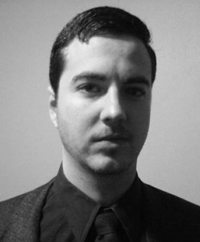
Is there a tipping point in a person’s life where the drive to be better, to never quit, and to throw off doubt enables that person to move forward with more momentum? To not look back in fear, to refuse discontent, to reject complacency, and to cast aside regret? To displace paranoia, to remove anxiety, and to experience life as a human being without them—or, if they do remain present, to understand the lingering distrust of a more complete identity?
I’ve overcome many non-physical obstacles like class, religion, even cultural differences, but it was not until I achieved my life-long goal of graduating from university that I understood the importance of taking medicine regularly, being candid with my doctor, and educating myself about mental health conditions. I saw the value of peer-reviewed journals, books, and online social media. I began to learn about “early warning symptoms” like insomnia or rapid speech, and developed support and self awareness to help me detect these signs before they occurred.
I gave a speech right before I graduated on “Fight or Flight Mechanisms.” The whole speech was about my passion for running cross country and track, of running away from problems at home or in school, of spending my healing time playing video games instead of coming to terms with emotional loss. In short, the speech was about how I choose “flight” as my instinct mechanism. “I’m a runner, I run from everything, instead of facing my fears,” I said. Looking back, I realize that I am a fighter: I fought for 10 years to complete my bachelor’s degree; I fought through dropping out of schools and multiple visits to the mental health unit; I fought to reconcile my past and accept who I am as an individual; and, lastly, I fought to obtain the healing necessary to reconcile the stigma that accompanied my diagnosis. What did it for me?
It wasn’t until after I was diagnosed that a sudden, severe depression accompanied my high anxiety. I felt worthless, like nothing could save me. I had neglected myself for so long that I was almost beyond repair. Then, I was gifted with a pen and a journal. I started to write down my thoughts and, when there were only fragments, I wrote songs or poems.
The process of writing is in itself the most therapeutic tool I have ever used in my life. If this writing accomplishes nothing else, it is to inspire one to pick up a writing utensil, start scribbling on paper, make notes, sketch pictures, doodle, anything. In doing so, hopefully, the process may turn into some success or grasping for a more complete identity, so that down the road one may look back and say, “When I wrote, I had some sense of belonging, of being and feeling, and that in that catharsis, it was possible to find hope to continue on through the drabness.” That is my only desire, for that is what saved me.

